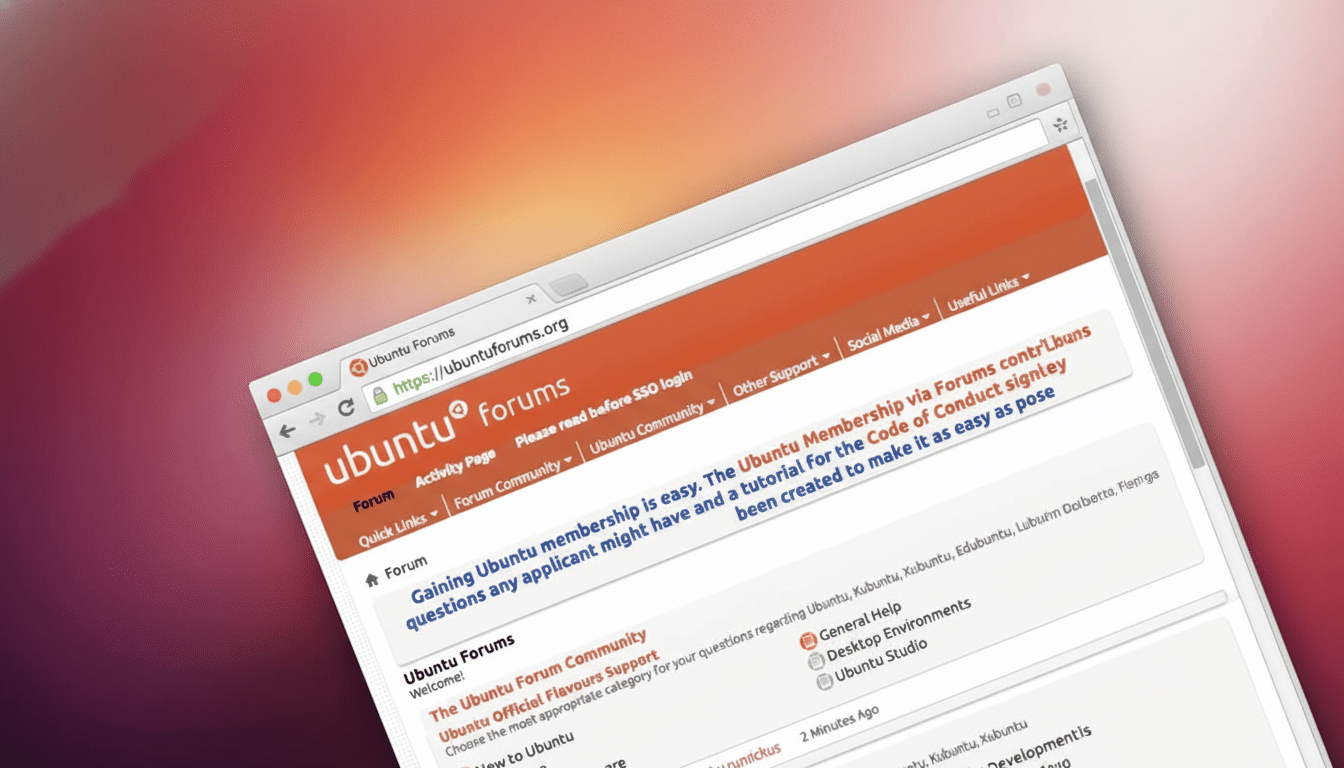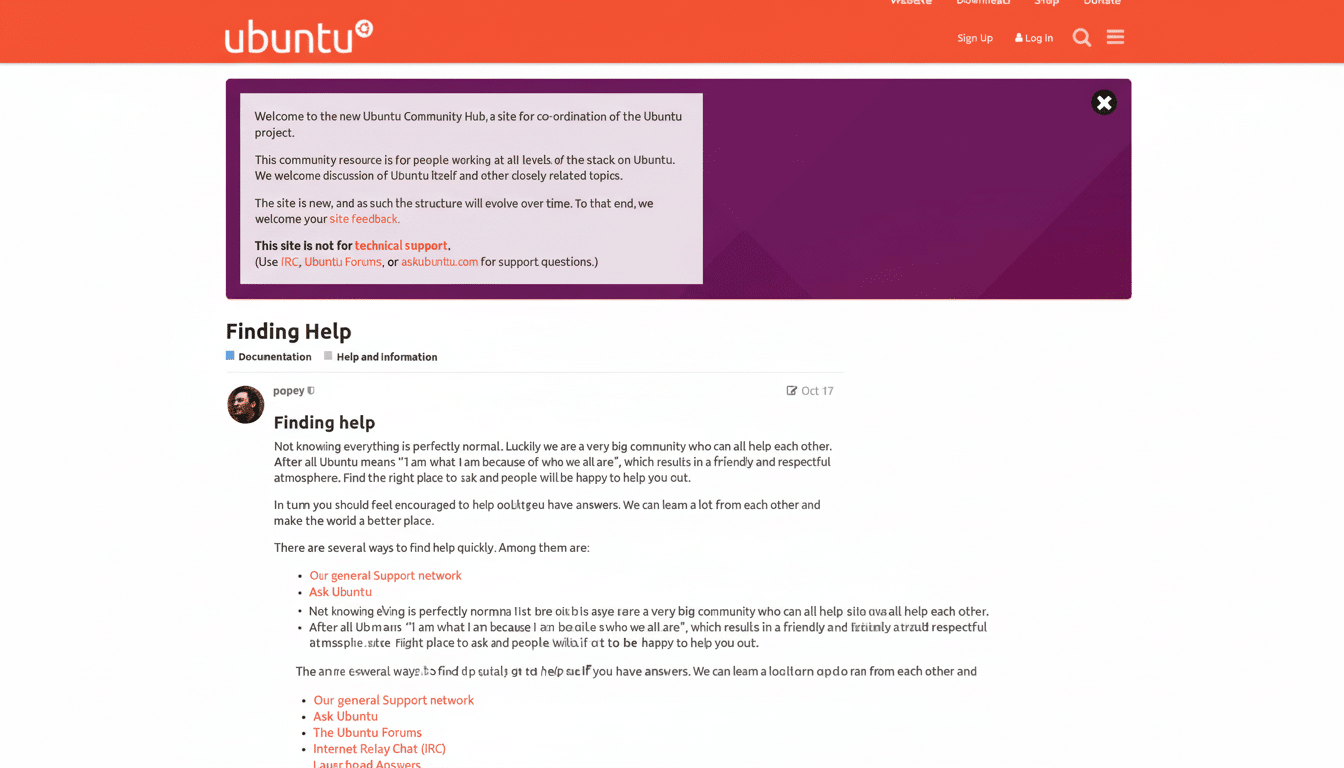When something breaks on my Linux box or I’m dabbling in a new distro, I don’t turn to a corporate knowledge base. I go to those places where Linux expertise actually resides: User forums, community sites, and a very few mailing lists that still establish how problems are approached and solutions identified in open source.
Why community support is still the winner
Linux moves fast. The kernel moves on a nine- or ten-week schedule, with each release also incorporating about ten thousand changes, as reported by the long-term kernel development report series from the Linux Foundation. And that velocity also means that edge cases pop up all the time — and the first people to write up solutions will usually be your fellow community members, who hit the snag 10 minutes before you did.

Surveys of developers from groups such as Stack Overflow always find that Linux is one of the top platforms of professional developers, which allows for deep, pragmatic answers in public forums. Bonus: Not only do you get “what” to do, you get the “why” — meaning the next fix should be speedier.
Go-to forums when I need quick answers
Distribution forairst criare my go to first, because advice there will reflect the exact tooling and defaults that you’re running. Ubuntu Forums are really useful when you’re fighting with snaps, PPAs or LTS upgrade oddities. Fedora Discussion is built on Discourse, and it’s home for the clear guidance I’ve gotten on SELinux denials and systemd surprises frequently from package maintainers themselves.
If you are living on the bleeding edge, the Arch Linux Forum could not be beat for lightning diagnosis, from kernel regressions to pacman hooks.The Gentoo Forums are a great resource for performance tuning and building a custom kernel if you’re not at the point in your life where you want to compile your own world. For a distro-agnostic view, LinuxQuestions. org with its millions of posts across legacy hardware to containerization.
Real example: the last time an update to Mesa introduced a GPU hiccup for me, Arch forum posts discussing the upstream bug and a temporary kernel parameter went up within hours. A week later, Fedora Discussion had a clean, distro-specific solution associated with an appropriate Bodhi update. That handoff — from warning shot to finished product — is why forums are still my first tab.
Social groups that actually help
Social platforms can be full of noise, but in the right corners, pace comes without snark. Reddit communities such as r/linux, r/linuxquestions and distro subs like r/archlinux and r/Ubuntu bring active users from all corners of the earth. You’ll frequently see maintainers chime in, offering context you won’t find anywhere else, particularly after big releases.
Project hosted matrix rooms and IRC bridges (from projects like Fedora, Debian, KDE, and GNOME) provide almost real-time triage. If I’m experiencing an issue related to desktop environment —some Wayland input woes, odd behavior from mutter or KWin—project-run Matrix channels tend to give me the quickest signal. There are even Mastodon instances built around free software that work surprisingly well for quick nudges and pointers to upstream issues (such as other well-known communities in the Fediverse, too).

Tip from my nomacs pande group posting experience: whenever you post to social groups add de and ds (wayland or Xorg)That single line reduces troubleshooting to a fraction of its normal time.
Mailing lists for deep dives and durable answers
Mailing lists might feel old-school, but they’re where hard problems get dissected. The Linux Kernel Mailing List is low-level, but is the authoritative source of low-level behavior, device driver regressions and subtle scheduler changes. For every day users, debian-user, Fedora user’s and devel lists, and Arch-general are all busy and well moderated.
You may not get an immediate response, but you will receive lasting knowledge. The paper trail – proposals, patches and final resolutions – typically informs distro documentation later on. Many projects have moved from lists to Discourse or Matrix on the desktop, but archives are invaluable to understanding the rationale behind design decisions and historical context.
How to ask for help and get it quickly
Start by being specific: distribution and version, kernel version, desktop environment, display server, hardware basics. Copy and paste the exact error messages, the command you ran, and what you expected. If it’s to do with booting or graphics, provide journalctl excerpts and your GPU model. If the log is long, copy it here and please give us a link in qt.pastebin etc, instead of filling the thread.
Test the issue with a new user profile / live ISO to exclude local configuration. Say what you’ve already attempted, including any upstream bug numbers you found. And last: Close the loop — report on what worked. That’s the way the fix today becomes the search result tomorrow.
Quick guide: Which channel is right for me?
For packaging, upgrades, and service defaults on the distros head to their forums. Bounce yours against the hit social groups for quick triage on new breakage or a sanity check on a different approach. Fall back to mailing lists when you need authoritative answers on kernel / toolchain / design-level behavior. And through all three, the power of the community is evident: Linux is a system that develops in the open, and its solutions do so, as well.

